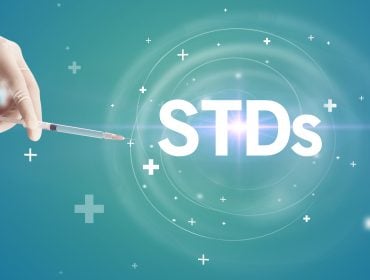Do I Have HIV?: Early HIV Symptoms
Learn about the early stage of HIV and the symptoms that may be experienced during it.
HIV cannot be diagnosed based on symptoms alone. The only way to know for sure if you have HIV is to get tested for the Human Immunodeficiency Virus. There are three stages of HIV: The early stage, the latency stage and the late stage also known as AIDS (Acquired Immunodeficiency Syndrome), all of which can be accompanied by their own symptoms.
Some individuals who have contracted HIV may never experience symptoms or may experience symptoms that are similar to other illnesses like the common cold or flu.
The Early Stage of HIV
The early stage of HIV (also known as acute HIV) starts upon contracting the virus. During this stage, some people may experience symptoms that are similar to the flu approximately 2-4 weeks after becoming HIV-positive. While many do experience symptoms in this stage, some people may never experience any signs or symptoms of having contracted HIV.
Early Symptoms of HIV
When early signs of HIV do occur, they are likely to present as one or more of the following symptoms:
- Rashes on the body
- Fever
- Swollen lymph nodes
- Malaise (a general feeling of body weakness, discomfort and/or lethargy)
According to the Centers for Disease Control and Prevention (CDC), these symptoms above (which are known as acute retroviral syndrome) are seen in 50-80% of newly HIV-positive individuals. They are often overlooked as they are common symptoms of many illnesses and people do not suspect these non-specific symptoms to be related to HIV.
Additional symptoms that may occur during the acute stage of HIV include:
- Nausea and/or vomiting
- Night sweats
- Headaches
- Sore throat
- Aching muscles and/or joint pain
- Fatigue
- Ulcers that occur in the mouth
- Ulcers that occur on the genitals
It is important to start treatment for HIV as soon as possible since the virus replicates and begins to destroy important immune cells. This is why it is so crucial to get tested after potential exposure, even if you are not experiencing symptoms. HIV is highly contagious during the acute stage, and because this stage occurs during the first few weeks after contraction, it may not show up as a positive test result this soon unless the test taken is an early detection test. (See this blog post to view a breakdown of HIV Test Types.)
Secure and Confidential
STD testing services
The fastest results possbile - available in 1 to 2 days
HIV Incubation Period
Incubation periods (also known as window frames) vary from person to person, so while one HIV-positive individual may be able to take an HIV test and show a positive result 15 days after contracting it, another HIV-positive individual may take 40 days to develop enough antibodies to result in a positive test result. The average incubation period for people to develop antibodies to HIV is 25 days to two months, however, it can take some people as long as three months to develop a sufficient amount of antibodies to the virus. If you get antibody testing done before this time frame has elapsed, it is recommended that you get tested again to confirm your results once the incubation period has fully passed.
HIV 4th Generation Antibody/Antigen Testing
If you think you may have been exposed to HIV, you can get an FDA-approved HIV 4th Generation Antibody/Antigen test. It can accurately detect HIV antibodies as early as 13-42 days after exposure. This HIV 4th Generation test also detects HIV P24 antigens, offering two ways to detect whether or not you have the virus. P24 antigens are proteins emitted by HIV that the immune system detects as a foreign substance and attempts to fight off. Antibodies are proteins that the body produces as a response to pathogens like bacteria and viruses; this test detects the antibodies the body creates to attack the HIV virus.
HIV RNA Testing
We also offer an FDA-approved HIV RNA Early Detection test which can detect HIV as soon as six days post-exposure in some individuals. This test has very high accuracy rates after 9-11 days (which are even higher after 28 days post-exposure). RNA is the genetic material of a virus, so HIV RNA tests are detecting the presence of the Human Immunodeficiency Virus itself, therefore it does not have to wait for the body to produce a high enough level of antibodies for detection since it is not looking for antibodies at all. This HIV RNA test is the best option for detecting HIV as soon as possible.
Following the acute (early) stage of HIV is the asymptomatic stage, during which no symptoms are exhibited for months or even years.
The CDC recommends getting testing for HIV at least annually, however it is important to get tested anytime you participate in high-risk sexual activities or intravenous drug use.
Medically Reviewed by J. Frank Martin JR., MD on October 10, 2023
Secure and Confidential
STD testing services
The fastest results possbile - available in 1 to 2 days

Tagged
Categorized As
Author: Nick Corlis
Nick Corlis is a writer, marketer, and designer. He graduated from Texas State University in San Marcos, Texas, with a degree in Digital Communications. Nick is proud to be able to help eliminate the stigma of STD testing through his writing and is always trying to advocate the importance of your sexual health. Before STDcheck, his favorite way to develop his writing skills was by accepting various writing jobs in college and maintaining multiple blogs. Nick wears many hats here at STDcheck, but specifically enjoys writing accurate, well-researched content that is not only informative and relatable but sometimes also contains memes. When not writing, Nick likes to race cars and go-karts, eat Japanese food, and play games on his computer.




